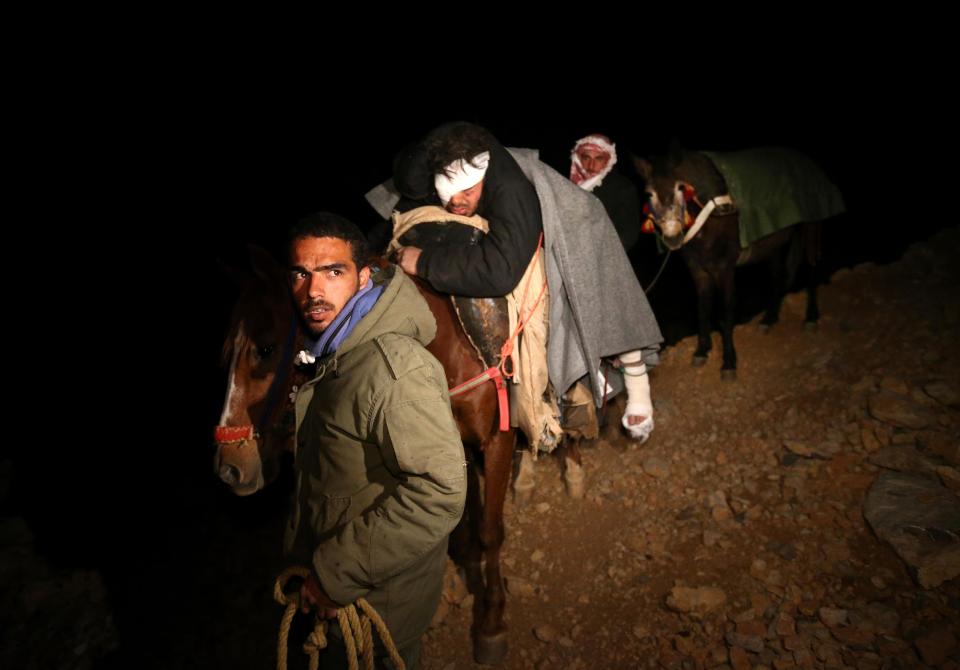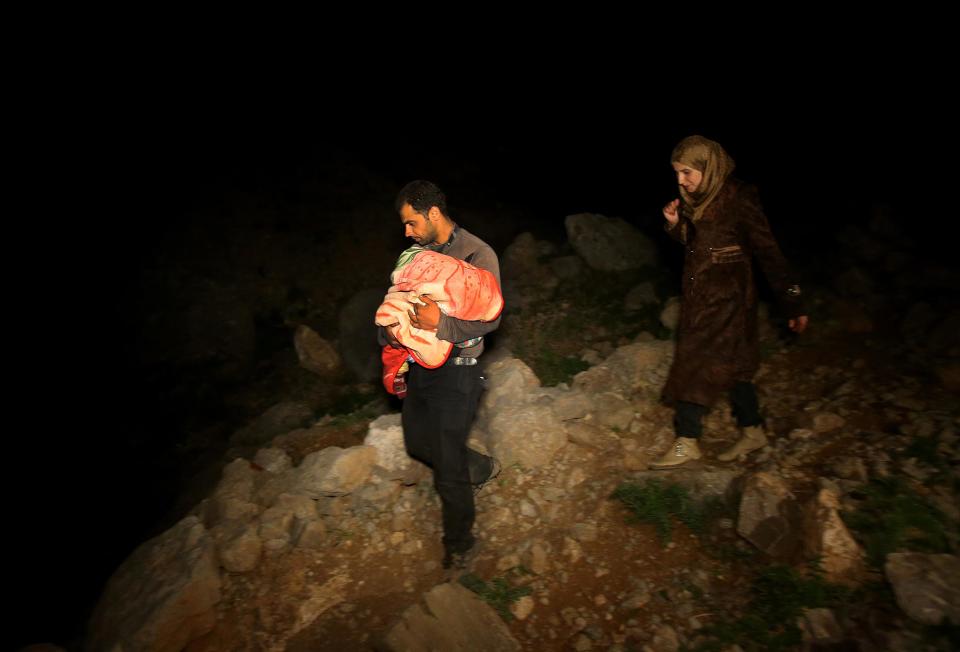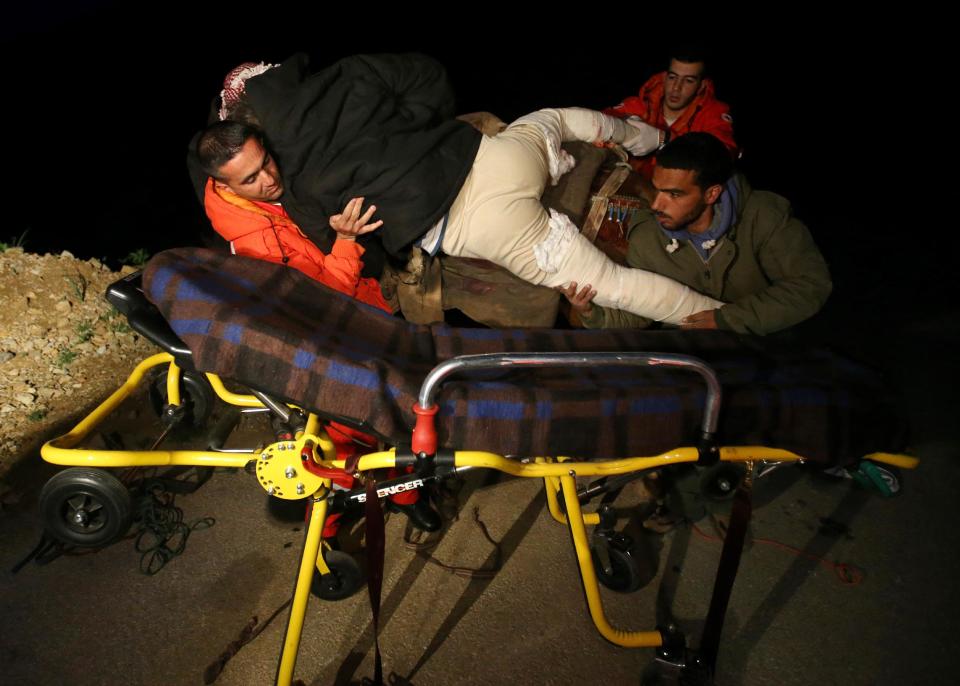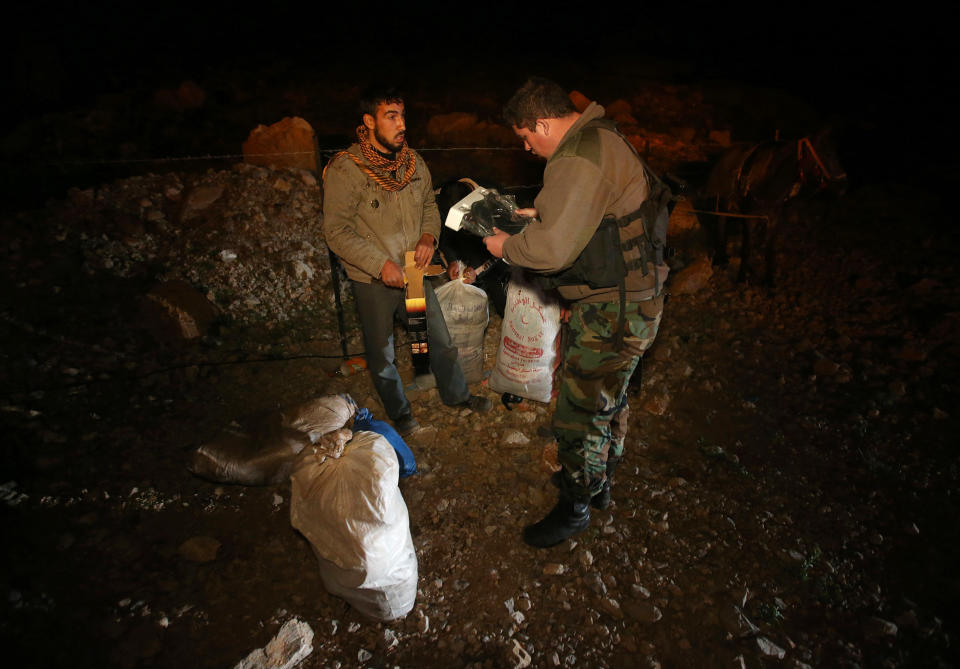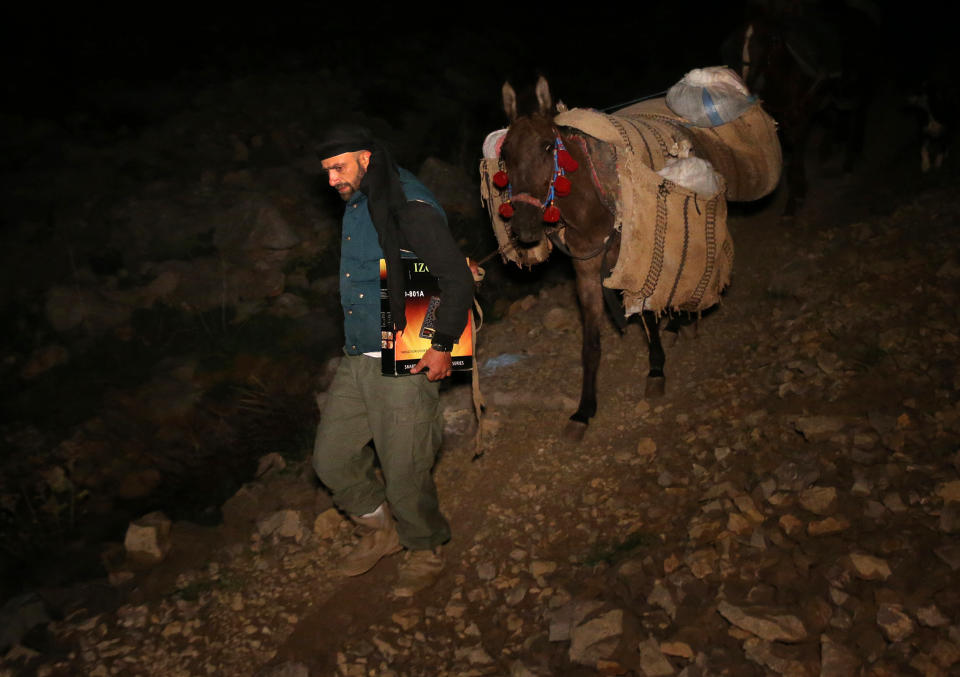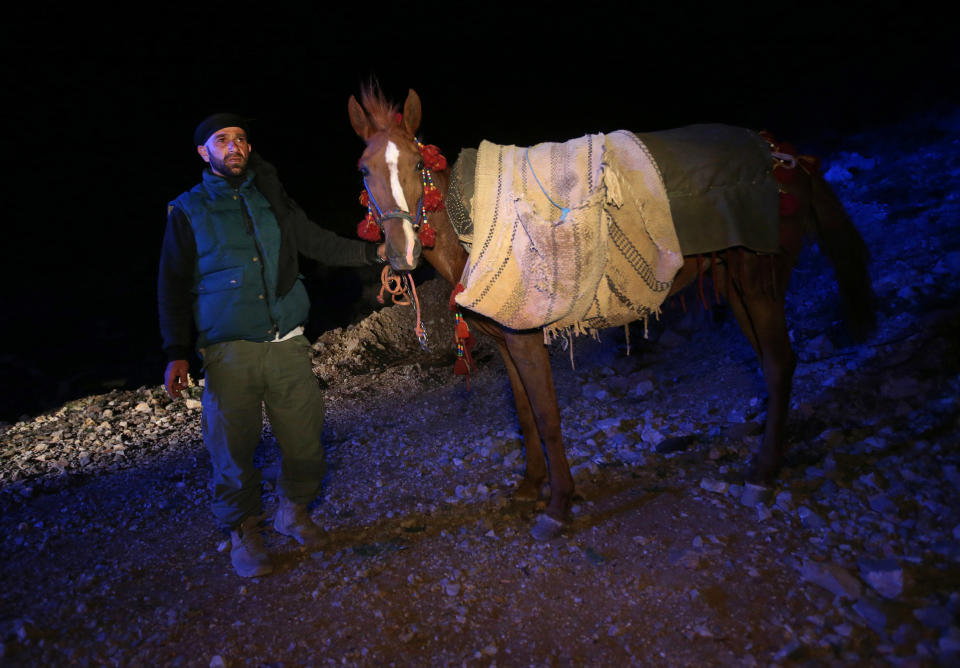AP PHOTOS: Syrians on treacherous trek to safety
MOUNT HERMON, Lebanon (AP) — As the late-day sun slipped behind the mountains in front of them, a ragtag group of around a dozen Syrians desperate to flee their country's bloody civil war set off on their treacherous nighttime trek across the rugged frontier into neighboring Lebanon.
Ahead of them: at least a nine-hour climb in darkness up — and down — the 2,814-meter (9,232-foot) Mount Hermon. Once in Lebanon, they will join the more than 2.5 million other Syrians across the region who have escaped the civil war in their homeland to begin the life of a refugee.
On a recent night, those making the journey included a young couple with a newborn baby; a sick, elderly woman accompanied by her daughter and son; and a young man, both legs wrapped in bandages from heel to hip, who was secured with a rope face down to a horse for the hike.
At the foot of the mountain on the Lebanese side of the border, 32-year-old Syrian laborer Ibrahim Abdulghani saddled two horses. A flash of light from up the mountain signaled the Syrians were starting to descend. He rode up to meet them and guide them down through the wind and rain lashing the rocky slope.
Among them was 74-year-old Farizeh Kabalan, who could not walk. Abdulgahni put her and her meager belongings, all of which fit into a plastic bag, on a horse and slowly picked their way down the mountain to a Lebanese army checkpoint at the base. Once there, Kabalan collapsed into the hands of four Red Cross workers, who loaded her into an ambulance.
The Lebanese troops carefully searched the Syrians and their belongings to try to prevent rebels from sneaking into the country with weapons.
The soldiers are particularly suspicious of young men, like 28-year-old Saleh Zawaraa, who was wrapped in bandages. He told the soldiers he was not a fighter, but was hit by a tank shell outside of Beit Jinn while trying to bring bread into the village. The soldiers let him through.
Like those who fled before them, these Syrians spoke of immense suffering back home.
Most of them come from the village of Beit Jinn. They said the village has been under siege by Syrian troops for months, and no food or medicine has been allowed to reach thousands of trapped civilians inside.
Still, only the most desperate risk the perilous journey, Abdulghani said. The list of dangers, he said, runs long: crossfire from clashes; snipers; airstrikes; snow in winter and pouring rain in spring. For fear of being spotted by snipers while climbing up the mountain on the Syrian side, smoking is prohibited.
"They can light up a cigarette when they descend into Lebanon," he said.
___
Follow AP photographers and photo editors on Twitter: http://apne.ws/15Oo6jo and Hussein Malla at www.twitter.com/hmalla72

 Yahoo News
Yahoo News 